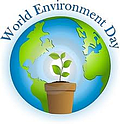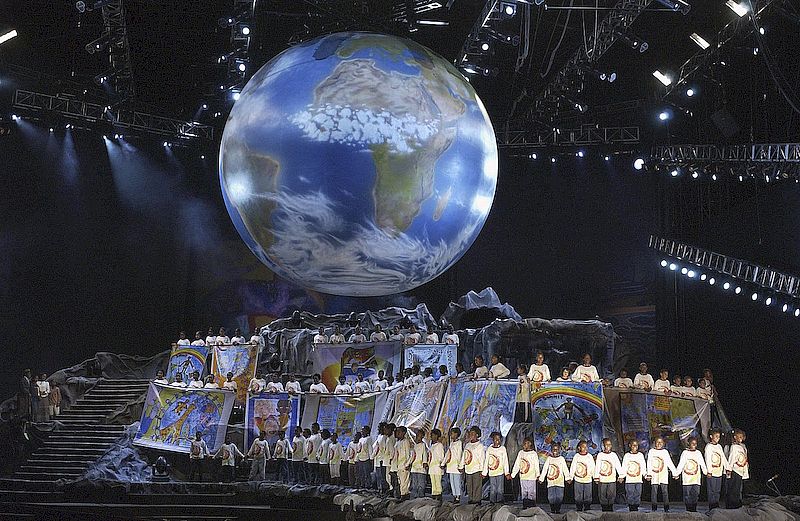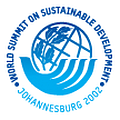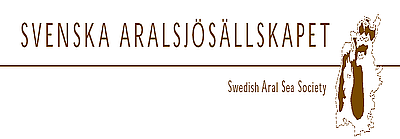1b.
The UN process – from Stockholm to Johannesburg
The global society has been concerned about the development and how it relates to the state of the environment since the Stockholm United Nations Conference on The Human Environment in June 1972. At the Stockholm conference, environmental concerns were for the first time established on the world agenda. It had been present in several national policies before that, but at the Stockholm meeting it was clear that environment was an international concern for the simple reason that pollution and resource depletion does not respect national borders. Pollutants travel with water or air long distances. Not the least, the Baltic Sea Region countries had experienced that from the acid rain, mostly coming from continental Europe and the British Islands.
 The Stockholm conference led to a major strengthening of the environmental agenda in many countries, with the establishment of ministries of environment, environmental protection agencies and the United Nations Environmental Protection Agency, UNEP. The 1970s also saw a remarkable strengthening of environmental science, environmental law, and the banning of the most destructive chemicals in many countries. Since the Stockholm conference, June 5 is celebrated as the World Environment Day (see also Chapter 9a: Governance and Democracy).
The Stockholm conference led to a major strengthening of the environmental agenda in many countries, with the establishment of ministries of environment, environmental protection agencies and the United Nations Environmental Protection Agency, UNEP. The 1970s also saw a remarkable strengthening of environmental science, environmental law, and the banning of the most destructive chemicals in many countries. Since the Stockholm conference, June 5 is celebrated as the World Environment Day (see also Chapter 9a: Governance and Democracy).
If the early 1970s had been a time favourable for international cooperation and a “fairly mild” Cold War, the global atmosphere in the early 1980s was one of distrust and confrontation. The introduction of medium distance nuclear missiles on both sides of the iron curtain and the development of a new arms race, now in the space, made a 10-year follow-up of the Stockholm conference impossible. Instead, the United Nations established a so-called World Commission on Environment and Development, often called the Brundtland Commission after its chairperson, the Norwegian Prime Minister Gro Harlem Brundtland. This published its report Our Common Future in 1987. This is where the concept of Sustainable Development is introduced as a key concept on the global agenda.

An event at the Rio conference
The 1990s were again a period of many possibilities, after the 1989-91 dramatic events had led to the end of the Cold War and the dissolution of the Soviet Union. In 1992 the United Nations called the nations of the world to a new summit, the UN Conference on Environment and Development (UNCED). It took place in Rio de Janeiro in June 1992, and became the largest conference ever organized. 179 governments were represented and 120 heads of state took part. Five documents were issued from the conference, a most important one being the Agenda 21, a 40-chapter document for the 21st century on how to achieve sustainable development, every bit of it carefully negotiated and agreed on. Now, sustainable development became mainstream policy in most countries in the world.
After the Rio Conference, a Commission for Sustainable Development (CSD) was established at the United Nations to lead the international work. A number of important developments followed, among them the Climate Convention, the establishment of the Global Environmental Facility to finance sustainability projects, and support of green business.
 The next big meeting was the World Conference in Johannesburg, South Africa in 2002, ten years after Rio. It was the first UN conference where the phrase ‘sustainable development’ was in the name of the meeting. It did not become quite the same main event as the Rio conference. The most important document was its Plan of Implementation. The discussion was now about concrete details on how to work. Science and business were given main roles, the sustainable production and consumption patterns important, and education for sustainable development, ESD, another important point on the agenda. Just months later, the UN General Assembly decided on the decade for education for sustainable development to be 2005-2014 (see also: Chapter 5a: Sustainable Production and Consumption and Chapter 12a: Education for Sustainable Development.)
The next big meeting was the World Conference in Johannesburg, South Africa in 2002, ten years after Rio. It was the first UN conference where the phrase ‘sustainable development’ was in the name of the meeting. It did not become quite the same main event as the Rio conference. The most important document was its Plan of Implementation. The discussion was now about concrete details on how to work. Science and business were given main roles, the sustainable production and consumption patterns important, and education for sustainable development, ESD, another important point on the agenda. Just months later, the UN General Assembly decided on the decade for education for sustainable development to be 2005-2014 (see also: Chapter 5a: Sustainable Production and Consumption and Chapter 12a: Education for Sustainable Development.)
 In June 2012 the global society met in Rio again for the UN Rio+20 conference on sustainable development (UNCSD2012). This time the focus of the conference was green economy, reflecting that the economy is a top priority in most countries today and environmental concerns need to be included in economic development. The final document from Rio+20 is called The Future We Want, A main component is the agreement to develop as set of Sustainable Development Goals (SDGs). These are intended to follow the Millennium Development Goals (MDGs) and be a main focus in the UN work from 2015 when the MDG process ends.
In June 2012 the global society met in Rio again for the UN Rio+20 conference on sustainable development (UNCSD2012). This time the focus of the conference was green economy, reflecting that the economy is a top priority in most countries today and environmental concerns need to be included in economic development. The final document from Rio+20 is called The Future We Want, A main component is the agreement to develop as set of Sustainable Development Goals (SDGs). These are intended to follow the Millennium Development Goals (MDGs) and be a main focus in the UN work from 2015 when the MDG process ends.
Material for session 1b
Basic level
- Read The Road to Sustainability – The political history by Katarina Eckerberg. In: A Sustainable Baltic Region. Session 1.
- Watch Severn Cullis-Suzuki speaking at UN Earth Summit 1992 (YouTube Video)
- Watch Severn Cullis-Suzuki – A Call to Action for Canadians for Earth Summit 2012 (YouTube Video)
- Watch Maurice Strong's thoughts on Rio+20 in 2012 (YouTube Video)
- Read Environmental Science, chapter 23, pages 693-697: International Co-operation for the Environment.
Medium level (widening)
- Read Environmental Science chapter 23, pages 697-702: International Co-operation for the Environment
- Watch and listen to How NGO’s Can Get Involved in the Rio+20 Summit Process, Jan-Gustav Strandenaes (YouTube Video)
Advanced level (deepening)
Study in some detail the documents from the political process:
- Our Common Future – the report of the United Nations World Commission on Environment and Development also called the Brundtland Commission
- Agenda 21 and the other Rio documents
- The Johannesburg World Summit on Sustainable Development.
Additional Material
Sustainable Development Goals
The Future We Want
References
Rydén, L., Migula, P. and M. Andersson. 2003. Environmental Science – understanding, protecting, and managing the environment in the Baltic Sea region. Baltic University Press. Uppsala, Sweden.
Sörlin, S. (ed.). The Road Towards Sustainability. A Sustainable Baltic Region Session 1. Baltic University Press. Uppsala, Sweden.
